Jump To Section
Love Begins with You: The First Step to Truly Loving Others
To truly love others effectively, you must first master the art of self-love. This idea might seem counterintuitive at first. After all, aren’t we often taught that love means putting others before ourselves? However, this belief overlooks a fundamental truth: you can’t pour from an empty cup. If you don’t nurture your well-being, your ability to give genuine, wholehearted love to others diminishes.
Explore further on Self-Worth: 10 Inspiring Value Yourself Quotes to Boost Your Confidence
Self-love is about recognizing and valuing your worth. It’s not about being selfish or narcissistic; rather, it’s about understanding that you deserve the same care and compassion you freely give to those around you. When you love yourself, you acknowledge your strengths and weaknesses without harsh judgment. This self-acceptance forms a solid foundation upon which healthy, loving relationships can be built.

Imagine trying to support a friend through a tough time when you’re feeling depleted and overwhelmed. Your capacity to be there for them is compromised because you haven’t addressed your own needs. Conversely, when you prioritize self-love, you’re better equipped emotionally and mentally to offer the support and love your friends and family need. You become a source of stability and positivity.
Self-love also fosters empathy and understanding. When you practice kindness towards yourself, you’re more likely to extend that same kindness to others. You become more patient, less critical, and more forgiving—qualities that are essential in any meaningful relationship. Additionally, by setting healthy boundaries, you teach others how to treat you with respect, creating a balanced dynamic where love can thrive.
So, take the time to engage in self-care, pursue activities that bring you joy, and speak to yourself with kindness. Remember, the journey to loving others starts with loving yourself. By mastering self-love, you unlock the potential to form deeper, more authentic connections with those around you.
Ways To Love Yourself: Embracing Aging: 10 Powerful Strategies for a Healthier, Happier Life
Debunking the Myth: Self-Love as the Key to Loving Others Effectively
A common misconception you might encounter is that self-love equates to selfishness. Society often promotes the idea that prioritizing your own needs and well-being is self-centred. However, this couldn’t be further from the truth. In reality, self-love is a crucial component of emotional health and well-being, and it plays a vital role in your ability to love others effectively.

When you hear the term “self-love,” you might picture someone indulging in luxuries or neglecting the needs of others. But self-love is about much more than treating yourself occasionally. It’s about consistently nurturing your mental, emotional, and physical health. It means recognizing your value, setting healthy boundaries, and understanding that taking care of yourself enables you to better care for others.
Time To Learn This: Living Without Regrets: 6 Powerful Strategies for a Happier Life
The true importance of self-love lies in its power to enhance your relationships. When you practice self-love, you develop a deeper understanding and acceptance of yourself. This self-awareness allows you to interact with others more authentically and empathetically. You’re not constantly seeking validation from external sources because you understand your worth. This inner confidence makes your relationships healthier and more fulfilling.
The purpose of this blog is to explore how self-love enhances your ability to love others. By delving into the principles and practices of self-love, you can learn how to create a solid foundation for your emotional well-being. This foundation is essential for building strong, meaningful connections with those around you.
Throughout this blog, you will discover practical tips and strategies to cultivate self-love in your daily life. From setting boundaries to practising self-compassion, these techniques will help you develop a more profound sense of self-worth. As you grow in your self-love journey, you’ll find that your capacity to love others expands, leading to richer and more rewarding relationships.
So, let’s debunk the myth that self-love is selfish and embrace it as a powerful tool for personal and relational growth. By prioritizing self-love, you can transform the way you connect with others, fostering deeper, more genuine relationships.
Understanding Self-Love: The Foundation for Truly Loving Others
Self-love is often misunderstood, and frequently confused with selfishness or narcissism. However, it’s essential to distinguish between these concepts to appreciate the true value of self-love in your life. Self-love involves recognizing your worth, treating yourself with kindness and respect, and prioritizing your well-being. It’s about nurturing your mental, emotional, and physical health to become the best version of yourself.

Selfishness, on the other hand, is characterized by an excessive focus on your own needs and desires at the expense of others. It often involves disregarding the feelings and needs of those around you. Narcissism goes even further, involving an inflated sense of self-importance, a deep need for admiration, and a lack of empathy for others. Unlike self-love, narcissism is rooted in insecurity and often leads to unhealthy relationships.
Meet Your Inner Child: From Pain to Peace: 7 Books on Healing Childhood Trauma and Building Resilience
Embracing self-love has profound psychological and emotional benefits. When you practice self-love, you build a foundation of self-worth that doesn’t depend on external validation. This inner confidence allows you to face life’s challenges with resilience and grace. Psychologist Dr. Kristin Neff, a pioneer in the field of self-compassion, emphasizes, “Self-compassion involves treating yourself with the same kindness, care, and concern you show a loved one.” By cultivating self-compassion, you enhance your emotional well-being and develop a healthier relationship with yourself.
Self-love also reduces stress and anxiety. When you prioritize self-care and set healthy boundaries, you create a balance that prevents burnout. Dr Brené Brown, a renowned researcher on vulnerability and shame, notes, “When we can let go of what other people think and own our story, we gain access to our worthiness—the feeling that we are enough just as we are and that we are worthy of love and belonging.”
Furthermore, self-love improves your relationships with others. When you understand and accept yourself, you’re more likely to extend the same understanding and acceptance to those around you. This leads to more authentic and empathetic interactions. Self-love enables you to set boundaries that protect your well-being while respecting the needs of others, fostering healthier and more balanced relationships.
Incorporating self-love into your daily life requires practice and commitment. Start by engaging in activities that bring you joy and fulfilment. Practice mindfulness to stay connected with your emotions and needs. Use positive affirmations to combat negative self-talk and remind yourself of your intrinsic worth.
In conclusion, self-love is not selfish or narcissistic; it’s a crucial aspect of your well-being that empowers you to live a more fulfilling and compassionate life. By embracing self-love, you not only enhance your emotional health but also improve your ability to form meaningful and supportive relationships. As you cultivate self-love, remember the words of Dr. Kristin Neff: “With self-compassion, we give ourselves the same kindness and care we’d give to a good friend.”
The Journey to Self-Love
Embarking on the journey to self-love is a transformative process that can significantly enhance your overall well-being and relationships. Cultivating self-love involves several key steps: self-awareness, self-acceptance, self-compassion, and self-care. Here’s how you can navigate each step and integrate practical tips into your daily life.

Self-Awareness: Recognizing Your Own Needs and Emotions
The first step in your journey is developing self-awareness. This involves paying attention to your thoughts, emotions, and physical sensations. By becoming more aware of your internal experiences, you can better understand your needs and desires.
Practical Tips:
- Journaling: Write daily entries about your feelings, thoughts, and experiences. This helps you identify patterns and gain insights into your emotional landscape.
- Mindfulness Meditation: Practice mindfulness to stay present and observe your thoughts without judgment. Apps like Headspace or Calm can guide you through this process.
- Regular Check-ins: Set aside time each day to check in with yourself. Ask questions like, “How am I feeling right now?” and “What do I need at this moment?”
Self-Acceptance: Embracing Your Strengths and Weaknesses
Once you’re aware of your inner world, the next step is self-acceptance. This means embracing all aspects of yourself, including your strengths and weaknesses. Recognize that imperfection is part of being human, and accept yourself as you are.
Practical Tips:
- Affirmations: Use positive affirmations to reinforce your self-worth. Statements like “I am enough” or “I accept myself completely” can be powerful.
- Gratitude Practice: Focus on your strengths and the things you appreciate about yourself. Keep a gratitude journal to record these daily.
- Surround Yourself with Positivity: Spend time with people who support and uplift you. Their positive energy can reinforce your self-acceptance.
Self-Compassion: Being Kind to Yourself, Especially During Failures
Self-compassion involves treating yourself with kindness and understanding, particularly during times of failure or difficulty. It’s about giving yourself the same grace you would offer a friend.
Practical Tips:
- Self-Compassion Exercises: Practice exercises from resources like Dr. Kristin Neff’s self-compassion workbook. These can help you develop a kinder inner dialogue.
- Pause and Reflect: When you make a mistake, pause and reflect instead of criticizing yourself. Ask, “What would I say to a friend in this situation?”
- Practice Forgiveness: Learn to forgive yourself for past mistakes. Acknowledge them, learn from them, and move forward without lingering guilt.
Self-Care: Prioritizing Your Physical, Mental, and Emotional Well-Being
The final step is self-care, which involves actively taking care of your physical, mental, and emotional health. Self-care practices are essential for maintaining balance and resilience.
Practical Tips:
- Set Boundaries: Learn to say no to activities or commitments that drain your energy. Protect your time and prioritize activities that nurture you.
- Physical Health: Engage in regular exercise, eat nutritious foods, and get enough sleep. These are foundational for overall well-being.
- Mental and Emotional Health: Practice relaxation techniques such as deep breathing, yoga, or spending time in nature. Make time for hobbies and activities that bring you joy.
By following these steps and integrating these practical tips into your daily routine, you can cultivate a deep and lasting sense of self-love. Remember, the journey to self-love is ongoing and requires patience and commitment. As you grow in self-love, you’ll find yourself better equipped to navigate life’s challenges and to love others more fully and authentically.
How Self-Love Transforms Your Relationships
Embracing self-love not only nurtures your well-being but also has a profound impact on the quality of your relationships with others. When you prioritize self-love, you cultivate a deeper sense of empathy, enhance communication skills, and foster a more authentic connection with those around you.
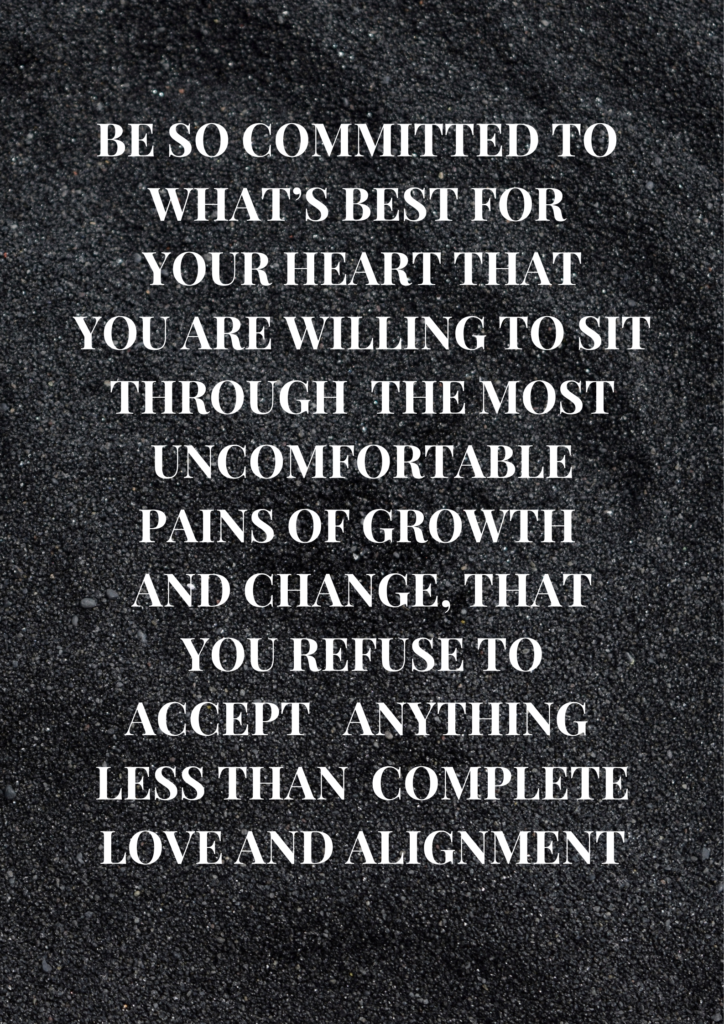
Improved Empathy and Understanding for Others
Self-love begins with self-awareness and self-acceptance, which naturally extend to others. As you develop a greater understanding and acceptance of yourself, you become more empathetic towards the experiences and emotions of others. You’re better able to put yourself in their shoes, seeing the world from their perspective. This empathy strengthens your relationships by creating a deeper sense of connection and mutual understanding.
Better Communication and Conflict Resolution Skills
Self-love empowers you to communicate more effectively and navigate conflicts with grace and compassion. When you love yourself, you’re better equipped to assert your needs and boundaries while also respecting the needs of others. You communicate from a place of confidence and authenticity, fostering open and honest dialogue in your relationships. Additionally, self-love enables you to approach conflicts with a calm and rational mindset, seeking resolutions that prioritize mutual understanding and growth rather than winning or being right.
Increased Ability to Give and Receive Love
Perhaps most importantly, self-love enhances your capacity to give and receive love authentically. When you truly love and value yourself, you’re able to offer love to others from a place of abundance rather than lack. You give freely without expecting anything in return, fostering a sense of generosity and reciprocity in your relationships. Similarly, you’re more open to receiving love and support from others because you recognize your worthiness of love.
Explore Further on Imperfection: Embracing Imperfection: 6 Techniques To Overcome Perfectionism and Foster Creative Freedom
Self-love is the cornerstone of healthy and fulfilling relationships. By prioritizing self-love, you cultivate empathy, improve communication skills, and deepen your capacity to give and receive love authentically. As you continue on your journey of self-love, you’ll find that your relationships become richer, more meaningful, and more rewarding.
Overcoming Barriers to Self-Love
On your journey to self-love, you may encounter various obstacles that hinder your ability to fully embrace and appreciate yourself. These barriers, such as negative self-talk, past traumas, and societal pressures, can undermine your self-worth and prevent you from experiencing the profound benefits of self-love. However, with patience, persistence, and the right support, you can overcome these obstacles and cultivate a deep and lasting sense of self-love.
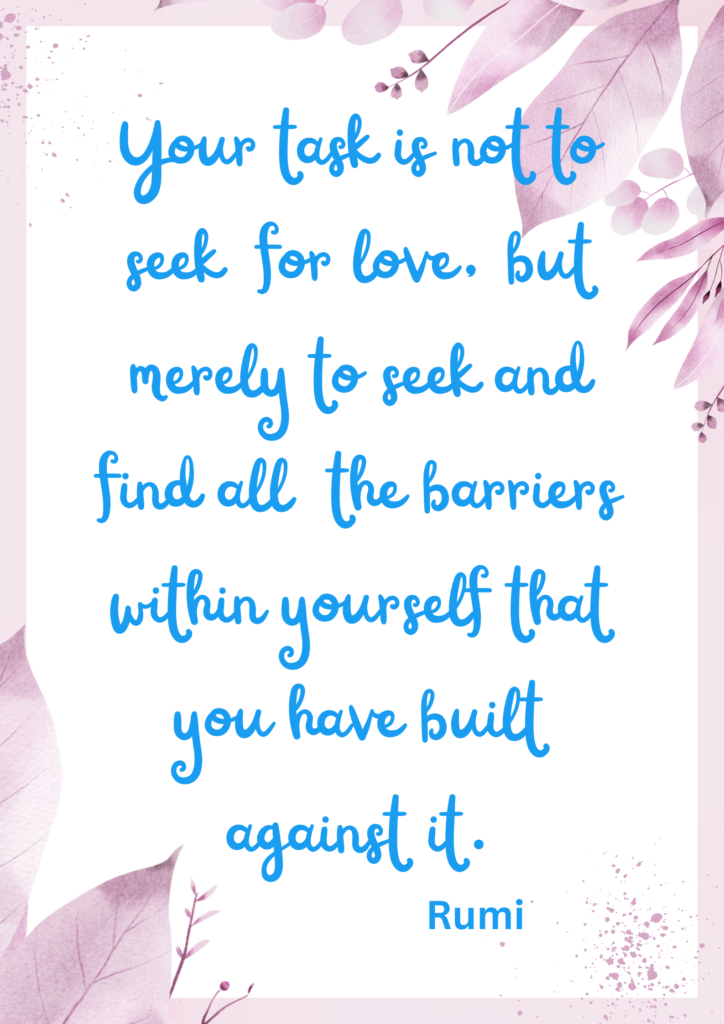
Identifying Common Obstacles
Negative self-talk is one of the most pervasive barriers to self-love. The inner critic constantly whispers doubts and insecurities, undermining your confidence and self-esteem. Past traumas, whether from childhood experiences or recent events, can also leave emotional scars that make it difficult to love and accept yourself fully. Additionally, societal pressures and unrealistic standards of beauty and success can create feelings of inadequacy and self-doubt.
Strategies for Overcoming Barriers
To overcome these barriers, it’s essential to practice self-compassion and seek support when needed. Therapy can provide a safe space to explore and process past traumas, allowing you to heal and move forward with greater self-awareness and acceptance. Support groups and community resources offer opportunities to connect with others who are on a similar journey, providing validation and encouragement along the way.
Self-help resources, such as books, podcasts, and online courses, can also provide valuable tools and techniques for building self-love. Practices like mindfulness meditation, affirmations, and journaling can help you cultivate a more positive and compassionate relationship with yourself. Remember, self-love is a journey, not a destination, and it requires patience and persistence to overcome obstacles and nurture a deep sense of self-worth.
Emphasizing Patience and Persistence
It’s important to be patient and gentle with yourself as you navigate the ups and downs of your self-love journey. Rome wasn’t built in a day, and neither is a strong sense of self-love. Celebrate your progress, no matter how small, and be kind to yourself during setbacks. Remember that self-love is a lifelong practice, and each step you take towards loving and accepting yourself is a step in the right direction.
Overcoming barriers to self-love requires courage, vulnerability, and a willingness to confront the inner demons that hold you back. By identifying common obstacles, seeking support, and practising patience and persistence, you can break free from the shackles of self-doubt and embrace the profound beauty and worthiness that lie within you.
Practical Exercises to Foster Self-Love
Incorporating practical exercises into your daily routine is an effective way to cultivate self-love and nurture a deeper sense of appreciation for yourself. These simple yet powerful practices can help you build resilience, boost self-esteem, and foster a greater sense of well-being. Here are some actionable exercises you can start implementing today:
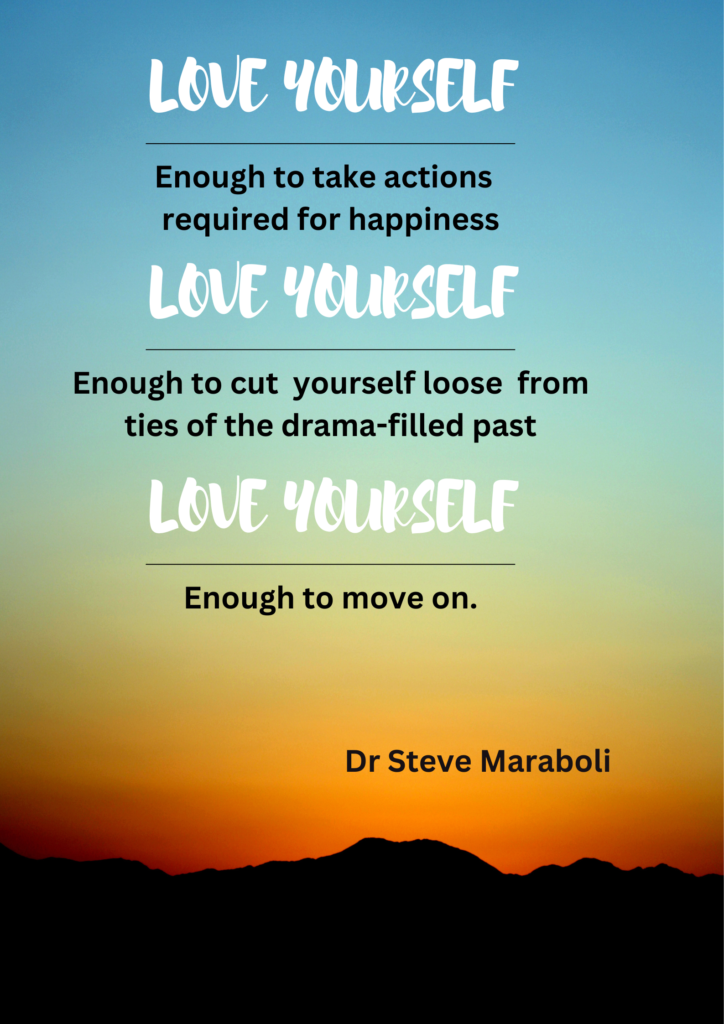
Daily Affirmations
Begin each day by affirming positive statements about yourself. Repeat phrases like “I am worthy,” “I am enough,” or “I deserve love and happiness.” Write them down or say them out loud to yourself, reinforcing a positive self-image and challenging negative self-talk.
Gratitude Journaling
Set aside time each day to reflect on the things you’re grateful for. Write down three things you appreciate about yourself or your life. This practice shifts your focus from what’s lacking to what you already have, fostering a sense of abundance and contentment.
Mindfulness Practices
Engage in mindfulness exercises to stay present and grounded in the moment. Practice deep breathing, meditation, or body scans to connect with your body and emotions. Mindfulness helps you cultivate self-awareness and self-compassion, allowing you to respond to challenges with greater ease and resilience.
Acts of Kindness Towards Oneself
Treat yourself with the same kindness and compassion you would offer to a friend. Take time for self-care activities that nourish your body, mind, and soul. Whether it’s taking a relaxing bath, going for a walk in nature, or indulging in your favourite hobby, prioritize activities that bring you joy and fulfilment.
Creating a Self-Love Routine
Experiment with these exercises and tailor them to your individual needs and preferences. Design a self-love routine that feels authentic and sustainable for you. Consistency is key, so aim to practice these exercises regularly, even if it’s just for a few minutes each day. Over time, you’ll notice a shift in your mindset and a greater sense of self-love and acceptance.
Remember, self-love is a journey, not a destination. Be patient with yourself as you explore these practices and allow yourself grace during times of struggle. By nurturing a loving and compassionate relationship with yourself, you lay the foundation for a more fulfilling and joyful life.
Conclusion: Embracing Self-Love for Deeper Connections
Throughout this blog, we’ve explored the transformative power of self-love and its profound impact on our relationships with others. Let’s recap the key points and reinforce the idea that self-love is the cornerstone of truly loving others.
Firstly, we discussed the importance of understanding self-love and distinguishing it from selfishness or narcissism. Self-love involves recognizing your worth, practising self-compassion, and prioritizing your well-being. It’s not about ego or arrogance but rather about cultivating a deep and unconditional love for yourself.
We then delved into the journey to self-love, outlining practical steps such as self-awareness, self-acceptance, self-compassion, and self-care. These steps provide a roadmap for nurturing a more loving and compassionate relationship with yourself.
Next, we explored how self-love transforms our relationships. By practising self-love, we develop greater empathy, communication skills, and capacity for giving and receiving love authentically. When we love ourselves, we’re better equipped to connect with others on a deeper level and form more meaningful relationships.
Now, I encourage you to embark on your self-love journey and observe the positive impact it has on your relationships. Start by incorporating some of the practical exercises we’ve discussed into your daily routine. Remember to be patient and gentle with yourself along the way—self-love is a lifelong practice that requires dedication and perseverance.
I invite you to share your experiences and tips on self-love in the comments section below. Let’s create a supportive community where we can learn from each other and grow together.
As a token of appreciation for your engagement, I’m offering a downloadable self-love guide or worksheet to help you on your journey. Click the link below to access your free resource and take the first step towards a more loving and fulfilling life.
Download Ebook: Being Whole
Thank you for joining me on this journey towards self-love. Together, let’s embrace our worthiness and cultivate deeper connections with ourselves and others.



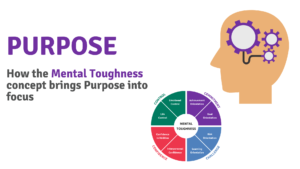
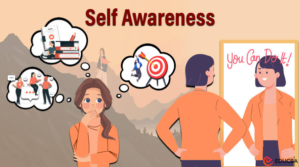
Pingback: "Cultivating Thankfulness: 11 Inspiring Gratitude Prayer to God" - True Potential Quest
Pingback: Relationship with Self: Unlocking 8 Secrets to a Harmonious Self-Connection - True Potential Quest
Pingback: Embrace Acceptance Now: 7 Amazing Tips to Transform Your Life - True Potential Quest